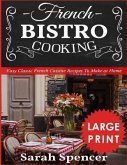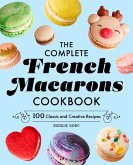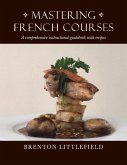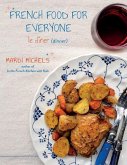Exploring the delights of French cuisine is like embarking on a culinary adventure, one that is both rich in history and vibrant in flavors. Growing up, I remember my grandmother whipping up classic French dishes in her cozy kitchen. The aroma of garlic and herbs would waft through the air, instantly transporting me to a world of warmth and comfort. Today, as I experiment with French recipes in my own kitchen, I find that the essence of this cuisine can be adapted to fit modern tastes and lifestyles. French cuisine is often celebrated for its sophistication and complexity, but it doesn't always have to be daunting. In fact, many traditional dishes can be simplified without sacrificing their rich flavors. For instance, take the classic ratatouille. This vegetable medley, typically slow-cooked to perfection, can be made quickly by roasting the vegetables in the oven. The result is a dish that bursts with flavor and is visually stunning, making it a perfect centerpiece for any meal. One of the joys of French cooking is the emphasis on fresh, wholesome ingredients. I've found that sourcing local produce not only enhances the taste of the dishes but also supports local farmers. For example, a simple salad of mixed greens, ripe tomatoes, and a homemade vinaigrette can be elevated with the addition of some fresh herbs like basil or tarragon. The bright flavors remind me of summer days spent at the farmers' market, picking out the ripest tomatoes and fragrant herbs. When it comes to cooking techniques, I've learned that embracing a few foundational skills can unlock a world of possibilities. Mastering the art of making a good stock, for example, can serve as the base for countless soups and sauces. I recall the first time I simmered a pot of chicken stock, the house filled with an inviting aroma that felt like a warm hug. It's these small yet impactful experiences that make cooking a pleasure rather than a chore. Incorporating modern tools and software into the cooking process has also changed the way I approach French cuisine. There are countless apps and websites that offer step-by-step guides, making it easier to tackle more complex recipes. I often find myself scrolling through food blogs for inspiration, discovering new twists on traditional dishes. For instance, a modern take on coq au vin might involve using a slow cooker, which allows the flavors to meld beautifully without requiring constant attention. Collaboration in the kitchen can also enhance the cooking experience. Recently, I invited a friend over to cook a French meal together. We decided to tackle bouillabaisse, a traditional fish stew. As we chopped, stirred, and tasted, we shared stories and laughter, turning the cooking process into a delightful bonding experience. This reminded me that food is not just about sustenance; it's about connection. While I strive for perfection in my dishes, I've come to appreciate the beauty of imperfections. A slightly burnt edge on a tart or a soup that turns out a bit thicker than intended can add character and charm. These moments remind me that cooking is as much about the journey as it is about the destination. In conclusion, exploring French cuisine in the modern kitchen is a rewarding experience filled with flavor, creativity, and connection. Whether you're a seasoned chef or a novice, there's always something new to discover. So, roll up your sleeves, gather some fresh ingredients, and let the delightful flavors of France inspire your next meal. Happy cooking!
Hinweis: Dieser Artikel kann nur an eine deutsche Lieferadresse ausgeliefert werden.
Hinweis: Dieser Artikel kann nur an eine deutsche Lieferadresse ausgeliefert werden.








